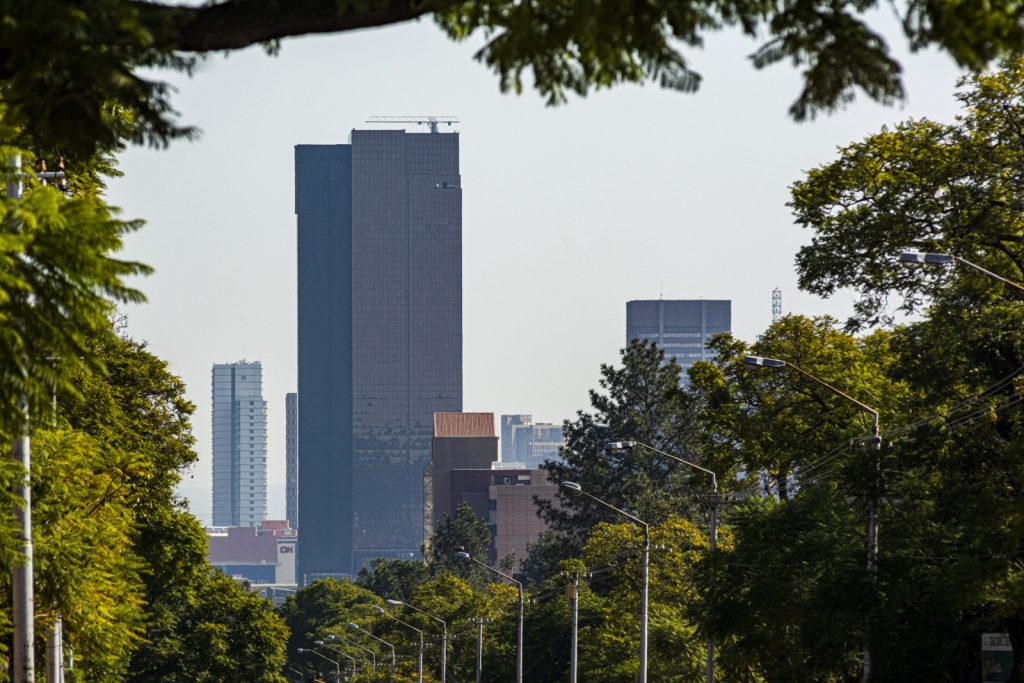

We finally have some breathing room after what has been a flood of bad economic news.
Although I continue to be prone to cynicism about the country’s economic outlook, it would be remiss of me not to at least acknowledge that things may be turning a corner. Load-shedding isn’t nearly as oppressive as it has been in recent months and inflation has hit a 13-month low — a fact which may finally convince the South African Reserve Bank to stop tightening the screws on borrowers.
That said, all the awfulness we have experienced these past months has left scars on the lungs of an economy and a population that has barely taken in a full gasp of air for more than a decade.
So, amid this pause in an otherwise relentless news cycle — which happens to have also left me clean out of ideas — I thought I’d reflect on what it means to be a journalist covering this breathless economy in the wake of what some have termed the “polycrisis”.
Journalism, as you well know, has an intimate relationship with crisis.
When I moved to the Mail & Guardian’s business desk, the newspaper was still reeling from the effect of the Covid-19 pandemic, which had left many of us wondering how we would keep doing our work. I was threadbare after hearing story after story about how the pandemic had squeezed the last bits of joy from people’s lives and had thought covering business would offer some reprieve — after all, by the tail end of 2020 we would have been forgiven for thinking that things would start looking up.
My editor at the time, climate journalist Sipho Kings, did warn that the pandemic years might be as good as it was ever going to get. Also prone to cynicism, a symptom of covering the pathetic efforts of the world’s politicians to avert another great crisis, Sipho’s warning was easy for me to dismiss, although it continued to niggle at me.
Probably because of my own restlessness at the time, and because it was difficult to ignore, I stumbled into covering the economy, unarmed with an economics degree.
As a business journalist, I quickly learned that there is a hierarchy in what is deemed worth writing about.
Because most of my colleagues were writing for investors, this hierarchy was ruled by money, so some journalists feverishly pump out short articles on company results. Economic data, which is something I spend a lot of my time covering, also features high up on the hierarchy, probably because it adds some dimension to the health of the country’s economy and thus its investment prospects. At the very bottom of the hierarchy, are people, the victims of the “real economy”.
This lower group barely ever draws any serious consideration from financial journalists. That is not to say that those in our profession don’t care for this segment. This inadequate coverage is a symptom of how we have been taught to believe economies work, from the top down.
Because it is so ingrained in us that profits trickle down, when we cover company results, or the movements of the rand — which have a bearing on people’s wealth — we often think we are also writing about people’s livelihoods.
But the truth is that most in this country hold no wealth to speak of. According to the World Inequality Report, the average household wealth for the bottom 50% of South Africa’s population has remained below zero since the 1990s. As highly concentrated as our nation’s wealth is, comparable to affluent Western Europeans, it is no wonder our focus is so narrow.
Again, it’s not that we don’t care. Journalists don’t move into the profession to make some people rich, better equipping them to trample the poor. But it is easy to get swept up in this status quo — we all are to some extent. The prevailing economic virtues of more is more is baked into what we value most in this world and thus how we apportion our care.
I’ll give you a practical example of how easy it is to slip into this way of thinking. Last week I tasked myself with assessing the economic value of the National Health Insurance (NHI). So maligned in the public sphere, particularly among business journalists, I had hoped to show that the NHI was something worth pursuing.
And how was that value measured? By the NHI’s contribution to GDP — the panacea for all our economy’s ills.
Why wouldn’t I try measuring the NHI’s value in this way? After all, this is how the basic income grant has been pitched, by government departments and progressive think tanks, as something worthy of our consideration. If something is deemed fiscally challenging, then it must, at the very least, hold the promise of economic growth.
Needless to say my article failed to make the case for the NHI based on its contribution to GDP. I had lost sight of the NHI’s real value — its ability to improve access to care and thus to health outcomes, which is difficult to quantify, a fact that has made the NHI in its current form a difficult sell.
All this is to say that financial journalists have an exciting challenge on our hands — to reaffirm the place of humanity in the global economy, exposing the horrors that the enduring system has created and, hopefully, convincing those in power to pursue more humane policies.
It’s not going to be easy and we will fail often. After all, many of the media companies that we work for are still struggling to keep their heads above the tide, which makes treading water seem like the only option for a journalist’s survival. But if we never swim against the current, we risk losing what it is to be a journalist.